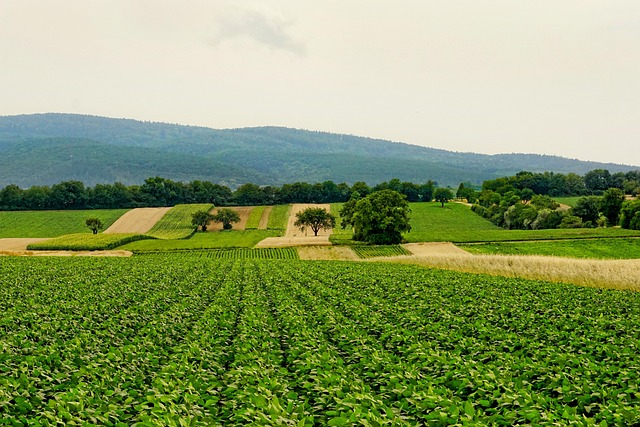Regenerative Agriculture Vision

Regenerative Agriculture is emerging as a powerful solution to create a healthier, more sustainable future for both people and the planet. Unlike conventional farming, which often relies on chemical inputs and intensive land use, regenerative practices focus on restoring and enhancing the natural ecosystem. This holistic farming approach works with nature rather than against it, improving soil health, increasing biodiversity, and capturing carbon from the atmosphere.
By nurturing the land through methods like cover cropping, crop rotation, composting, and reduced tillage, farmers can rebuild the fertility of the soil. Healthy soil retains more water, resists erosion, and becomes more resilient to droughts and floods. This not only boosts productivity but also supports long-term food security. Moreover, regenerative systems reduce dependence on synthetic fertilizers and pesticides, protecting local water bodies and the surrounding environment.
Another key aspect of Regenerative Agriculture is its potential to combat climate change. Soils rich in organic matter act as carbon sinks, helping to lower greenhouse gas levels in the atmosphere. At the same time, encouraging biodiversity—from soil microbes to pollinators—creates a balanced and self-sustaining ecosystem.
Communities around the world are increasingly embracing these practices to ensure economic viability for farmers and healthier food for consumers. Regenerative Agriculture isn’t just a farming technique—it’s a movement toward a greener future. By supporting these methods, we can heal the earth, promote rural prosperity, and secure a sustainable food system for generations to come.
Key Principles and Practices of Regenerative Agriculture
Regenerative Agriculture is built on a set of core principles designed to enhance soil health, increase biodiversity, and restore natural balance. These practices go beyond sustainability—they actively improve the ecosystem over time, creating lasting benefits for both farmers and the environment.
- Building Healthy Soil
Healthy soil is the foundation of Regenerative Agriculture. Techniques like cover cropping, mulching, and reduced tillage help keep the soil alive and thriving. Cover crops protect the land from erosion, add organic matter, and promote microbial activity. Minimal soil disturbance ensures that beneficial organisms continue to flourish, creating a fertile base for crops to grow naturally and productively.
- Enhancing Biodiversity
A diverse ecosystem is more resilient to pests, diseases, and climate fluctuations. Regenerative farmers plant multiple crop varieties and incorporate native plants, trees, and hedgerows to attract pollinators and beneficial insects. Livestock grazing is often integrated into the farming system, which further enriches soil nutrients and encourages balanced land use.
- Water Conservation and Carbon Sequestration
Regenerative methods improve the land’s ability to retain moisture, reducing the need for irrigation and protecting against drought. By increasing organic matter in the soil, these practices help trap and store carbon—turning farmland into an effective carbon sink. This plays a critical role in mitigating the effects of climate change.
- Reduced Reliance on Chemicals
By nurturing natural soil fertility and biological pest control, regenerative farming minimizes the need for synthetic fertilizers and pesticides. This protects water sources, safeguards biodiversity, and ensures cleaner, healthier food for consumers.
- Economic and Social Benefits
Regenerative Agriculture empowers farmers to reduce input costs while increasing long-term yields. It encourages local food systems, supports rural livelihoods, and builds stronger connections between producers and consumers. Communities benefit from more nutritious crops, cleaner environments, and stable incomes for farming families.
- A Path Toward a Greener Future
Adopting Regenerative Agriculture means investing in the future of our planet. It transforms farmland into living ecosystems that support life rather than depleting it. By combining traditional wisdom with modern ecological understanding, this approach paves the way for sustainable food production, environmental resilience, and community well-being.
Conclusion
Regenerative Agriculture offers a clear and practical path toward a healthier planet and a more resilient food system. By focusing on soil regeneration, biodiversity, and ecological balance, it addresses some of the biggest challenges of our time—climate change, soil degradation, and food insecurity. Unlike conventional farming, which often depletes natural resources, regenerative practices rebuild them, creating thriving ecosystems that support both people and the environment.
This approach is not just a farming method but a movement that connects farmers, consumers, and communities. It encourages responsible land stewardship, sustainable livelihoods, and cleaner, nutrient-rich food. By capturing carbon in the soil, conserving water, and reducing chemical use, Regenerative Agriculture helps restore the health of our planet while boosting productivity.
A sustainable future depends on how we care for our land today. Embracing regenerative methods ensures that future generations inherit fertile soil, balanced ecosystems, and secure food supplies. It’s time to move beyond short-term gains and work toward lasting environmental health. Together, we can make agriculture a solution rather than a problem—one farm, one field, and one community at a time.
Take the First Step Toward a Greener Future!
Join the movement to restore our soil, protect the planet, and boost sustainable farming with Regenerative Agriculture. Whether you’re a farmer, agri-entrepreneur, or eco-conscious grower, now is the time to make a lasting impact.
At indochemagrovet.in, we’re committed to supporting farmers and agri-businesses with innovative organic solutions that enrich the soil, enhance crop productivity, and safeguard the environment. Let’s work together to build a profitable and sustainable farming future.
📞 Contact Us Today:
+91 9830 720311 / 83369 77770
🏢 Mumbai Address:
Parewala House No. 4, Vakola, Santacruz (East), Mumbai 400055
🏢 Kolkata Address:
Block – DD, House No. 197, 1st Floor, Street No. 295, Action Area-1, New Town, Kolkata, West Bengal 700156
Empower your farm with Regenerative Agriculture solutions — healthier soil, higher yields, and a brighter tomorrow await!

